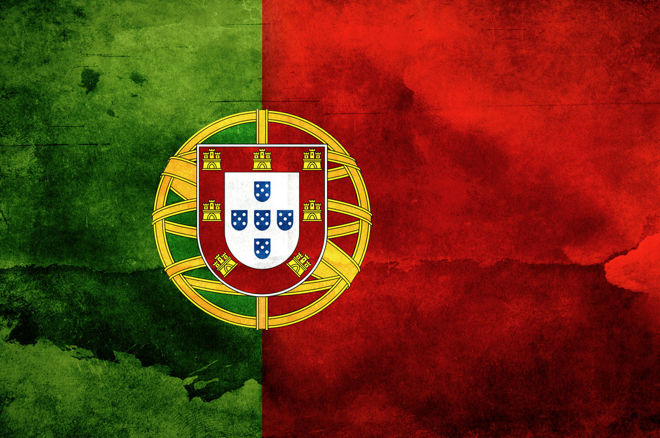Portugal Gambling Regulator
Portuguese casino revenue has yet to fully recover from the impact of the global financial crisis, having fallen from a peak of €386m in 2008 to €309m in 2017, the most recent year for which data is available.
Land-based casinos in Portugal are restricted to specific gambling zones: Açores, Algarve, Espinho, Estoril, Figueira da Foz, Funchal, Porto Santo, Póvoa de Varzim, Troia and Vidago-Pedras Salgadas.

Portugal Gambling Regulator Circuit
There are 12 casinos and one gaming room in operation in Portugal
Casinos can offer table games, including baccarat, blackjack/21, craps, cussec, American and French roulette and poker games.
Portugal’s casino tax hell Illegal online gambling is being cited as one of the culprits behind a 33% decline in Portuguese land-based gaming revenue over the past six years. Gambling Inspection and Regulation. Request a license for online gambling in Portugal. If you have a problem with gambling. The Inspectorate General on Gaming is the main authority on this matter and regulates local casino operators. Internet gambling was recently regulated in Portugal, so the organization's remit has. GamblingJudge – Best sports and casino bonuses and reviews! Find here the latest information on betting bonuses, sportsbook reviews and casino reviews tested by a team with 10+ years of experience. See the best bonuses and bookmakers in your country and find which payment method is suited for you. Regulated casino markets attempt to legalise, license, regulate, and tax online casinos. Law makers in these countries realise online gambling takes place whether the law it or not. They want to make the activity safer for their citizens, while collecting taxes, fees, and fines to help pay the cost of regulation and fund public education.
The government may authorise other forms of games of chance at the request of existing operators, but the SRIJ must provide an opinion of the proposed activity. Casinos can also only use gambling material that has been previously authorised by the SRIJ.

Land-based poker is only allowed within casinos, either in cash games or tournaments, as it is considered a game of chance in Portugal.
Portugal’s gambling regulator, the Regulation and Inspection Service of Games (SRIJ), is a component of the Tourism Office.
Aside from casinos, the gambling market in Portugal is dominated by Santa Casa, an historic charitable organisation which holds a monopoly over lottery games, land-based betting on sports and horseracing.
A liberalised online gambling market was introduced in May 2016, but has faced challenges due in large part to a tough tax regime, with online casinos taxed at a variable rate of 15-30 percent of GGR, but is now worth roughly 4 percent of market-wide GGR.
It was confirmed in October 2018 that initiatives to soften Portugal’s online gambling tax regime, through a consolidation of online gambling tax at 25 percent of GGR, were to be excluded at the last minute from the 2019 Budget
A working group set up to analyse potential tax changes in Portugal was then due to report in February, 2019, but failed to publish any findings.
Portuguese casino revenue has yet to fully recover from the impact of the global financial crisis, having fallen from a peak of €386m in 2008 to €309m in 2017, the most recent year for which data is available.
Land-based casinos in Portugal are restricted to specific gambling zones: Açores, Algarve, Espinho, Estoril, Figueira da Foz, Funchal, Porto Santo, Póvoa de Varzim, Troia and Vidago-Pedras Salgadas.
There are 12 casinos and one gaming room in operation in Portugal
Casinos can offer table games, including baccarat, blackjack/21, craps, cussec, American and French roulette and poker games.
The government may authorise other forms of games of chance at the request of existing operators, but the SRIJ must provide an opinion of the proposed activity. Casinos can also only use gambling material that has been previously authorised by the SRIJ.
Land-based poker is only allowed within casinos, either in cash games or tournaments, as it is considered a game of chance in Portugal.
Portugal’s gambling regulator, the Regulation and Inspection Service of Games (SRIJ), is a component of the Tourism Office.
Aside from casinos, the gambling market in Portugal is dominated by Santa Casa, an historic charitable organisation which holds a monopoly over lottery games, land-based betting on sports and horseracing.
Portugal Gambling Regulator Companies

A liberalised online gambling market was introduced in May 2016, but has faced challenges due in large part to a tough tax regime, with online casinos taxed at a variable rate of 15-30 percent of GGR, but is now worth roughly 4 percent of market-wide GGR.
It was confirmed in October 2018 that initiatives to soften Portugal’s online gambling tax regime, through a consolidation of online gambling tax at 25 percent of GGR, were to be excluded at the last minute from the 2019 Budget
A working group set up to analyse potential tax changes in Portugal was then due to report in February, 2019, but failed to publish any findings.